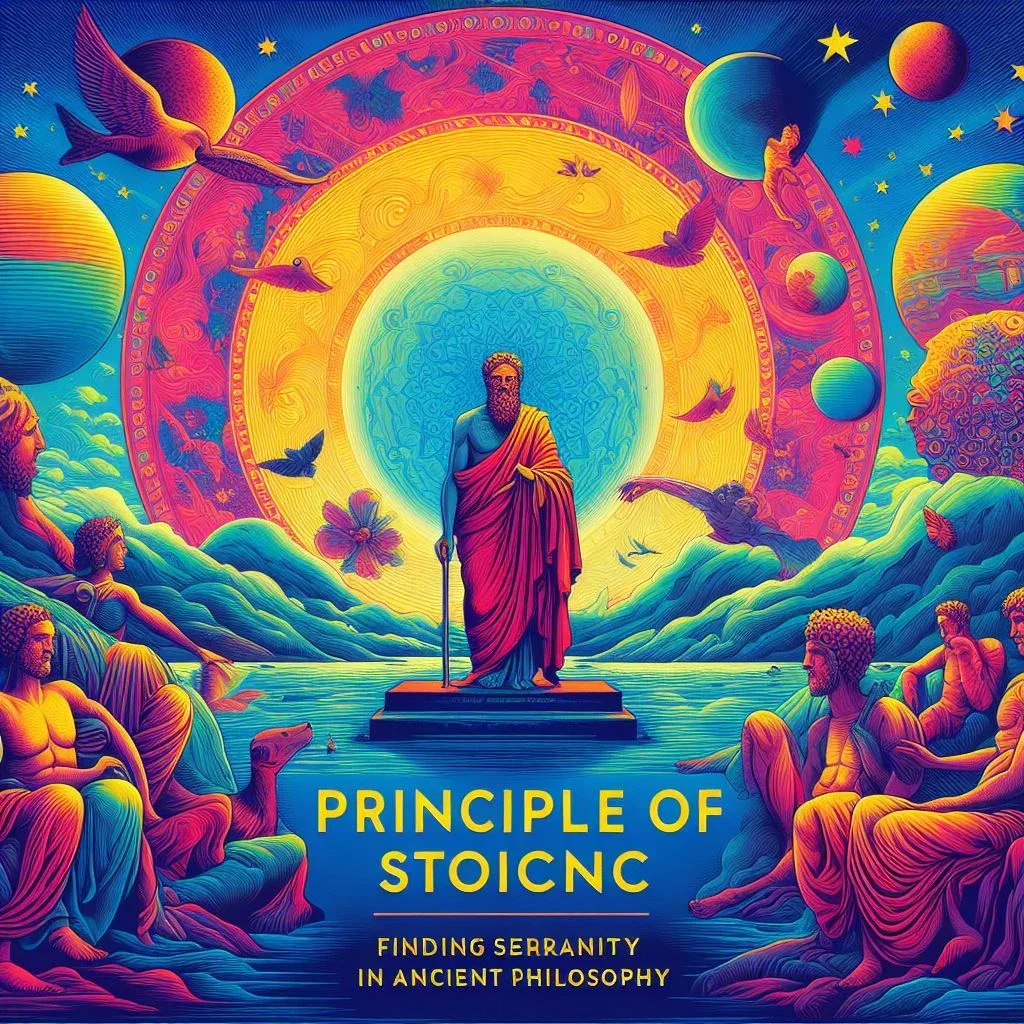Stoicism is an ancient philosophy that offers valuable guidance for facing life's challenges and seeking serenity. Its principles have stood the test of time and continue to inspire people around the world. In this blog post, we will explore the fundamental principles of Stoicism and how to apply them in your life to find greater inner peace and resilience.

What is Stoicism?
A Timeless Philosophy of Life
Stoicism is a philosophy that originated in ancient Greece and gained prominence in Rome. His teachings focus on living a virtuous life, finding serenity through self-control and accepting life's circumstances with ease.
The Fundamental Principles of Stoicism

1. Virtue is the Supreme Good
In Stoicism, virtue is considered the supreme good. The Stoics believed that the only thing that truly belongs to us is our ability to act virtuously. This means that we must seek wisdom, courage, justice and temperance in all our actions.
2. Distinguish Between What Is In Our Control And What Is Not
A central part of Stoicism is the distinction between what is in our control and what is not. They argue that we cannot control external events, but we can control our responses and attitudes towards them. Accepting this distinction helps us avoid the anxiety and stress caused by worrying about things we cannot change.
3. Serene Acceptance and Amor Fati
Amor fati, which means “love of destiny”, is a Stoic principle that encourages us to embrace everything that happens in our lives, even adversity. Calm acceptance of circumstances, rather than resistance, is seen as the path to inner peace.
4. The Quest for Wisdom
Stoicism values the pursuit of wisdom and self-knowledge. Through reflection and self-transformation, we can improve our understanding of the world and ourselves.
Applying Stoicism to Your Life

1. Practice Self-Discipline
Self-discipline is fundamental to stoicism. This involves controlling impulses, maintaining self-control, and cultivating healthy habits.
2. Develop Resilience
Resilience is the ability to deal with challenges and adversities calmly. By applying the principles of stoicism, we can learn to face difficulties with courage and determination.
3. Practice Gratitude
Gratitude is an essential part of amor fati. Appreciate what you have and see value in experiences, even difficult ones, as opportunities for growth.
Conclusion: Finding Serenity Through Stoicism
The principles of Stoicism offer a valuable guide to a life of virtue, serenity and resilience. By applying these principles to your daily life, you can find greater inner peace, accept your circumstances with equanimity, and seek wisdom on your journey. Stoicism is a timeless philosophy that continues to inspire people to live more meaningful and virtuous lives.
FAQ: Principles of Stoicism

Here are some frequently asked questions about the principles of Stoicism and their application to everyday life.
1. What is stoicism?
Stoicism is an ancient philosophy that emphasizes the pursuit of virtue, self-control, and serenity regardless of external circumstances.
2. What is the importance of virtue in Stoicism?
Virtue is considered the supreme good in Stoicism. Seeking wisdom, courage, justice and temperance is fundamental to living a virtuous life.
3. What does the distinction between what is in our control and what is not mean?
This distinction is central to Stoicism. What is in our control are our actions, choices and attitudes. What is not in our control are external events, such as the weather or the actions of other people.
4. How can I apply amor fati in my life?
The love fati, or “love of destiny,” involves embracing all circumstances in your life, even adversity, as opportunities for growth. This can be practiced by calmly accepting what happens and finding value in all experiences.
5. What is the role of self-discipline in Stoicism?
Self-discipline is essential to Stoicism as it helps control impulses, maintain self-control, and cultivate healthy habits that are aligned with virtue.
6. How can I develop resilience based on Stoic principles?
Resilience can be developed by facing challenges with courage and determination, calmly accepting circumstances and staying focused on what is within your control.
7. Why is gratitude important in Stoicism?
Gratitude is fundamental because it helps us appreciate what we have and see value in experiences, even difficult ones. She is aligned with amor fati and promotes an attitude of acceptance and serenity.
8. How can I start practicing stoicism in my life?
Start by reading about the principles of Stoicism and practicing reflecting on and applying these principles in everyday situations. Gradually, you will develop a more stoic mindset.




